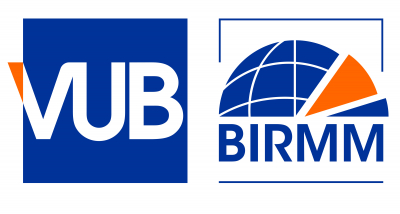
VUB hires a pre-doctoral researcher to study the role of Higher Educations Institutions' Diversity, Equality and Inclusion policies aimed at fostering an inclusive diversity climate and reducing the ethnic gap.
Your role
You will pursue a PhD in alignment with the objectives and activities of the SBO project ENGINE (Tackling the Ethnic Gap in Higher Education). ENGINE is a consortium-based project funded by FWO under the SBO funding scheme. The project aims to address the societal issue of ethnic inequalities in higher education institutions (HEIs), commonly referred to as the 'ethnic gap.' This gap is characterized by the underrepresentation, lower academic performance, reduced well-being, and diminished sense of belonging among students from ethnic minority groups compared to their majority counterparts. Through rigorous scientific research, the project intends to develop a 'Close-the-Gap toolkit' to significantly reduce this ethnic gap and harness the potential of the diverse youth in Flanders (Belgium) The research and tools will be developed in collaboration with various societal partners, particularly with (ethnic minority) student organizations, who are co-initiators of this project. We are seeking PhD candidates who are passionate about researching and addressing ethnic/racial inequality in higher education and to develop tools that promote equity.
The doctoral candidate will contribute to the development of the second work package, which examines the role of HEI's Diversity, Equality and Inclusion (DEI) Policies in fostering an inclusive climate and reducing the ethnic gap in higher. This WP also aims to unravel the contextual factors for the successful implementation of evidence-based good-practice examples. This will be achieved by describing and explaining how different types of policies and initiatives contribute to these aims. The research will be realized by using several complementary methods: a qualitative content analysis of policy documents, interviews with policymakers, a multi-level regression analysis correlating the policy analysis with the student survey results, and video interviews with initiators and implementors of good practice examples.
Further details about the overall project and other work packages can be found here.
What we offer?
- a full-time PhD position, initially for 1 year, renewable on an annual basis up to four years in total. Extension of the contract is subject to a positive evaluation of the doctoral committee
- career guidance and support to develop research-oriented skills via (e.g) the VUB Doctoral School in the Humanities
- a diverse and dynamic research environment in the heart of Europe.
- integration into the SBO 'ENGINE' project consortium team composed of PhDs, post-doctoral researchers and junior and senior professors affiliated to various research groups and entities in three Flemish Universities: Vrije Universiteit Brussel (BIRMM, BSOG-C-MDJ & MILO), KUleuven (LABO) and Universiteit Hasselt (R4D, School of Social Sciences) in co-creation with (ethnic minority) student organisations. The team will hold monthly full-day seminars and meetings allowing you to exchange with the other team members and receive feedback.
- this is a PhD position in political science. You will be primarily based at the Centre for Migration, Diversity and Justice at the Brussels School of Governance and the VUB's interdisciplinary research group BIRMM (Brussels Interdisciplinary Research centre on Migration and Minorities). You will be working with Prof. Ilke Adam and co-supervised by Prof. Dounia Bourabain (UHasselt).
- support for participation in international academic conferences and publication of your work in scientific journals
Your profile
We seek a motivated and skilled candidate with the following qualities:
- you completed a Master's degree in the fields of political science, sociology, anthropology or equivalent
- you have demonstrable experience in qualitative research methods, quantitative skills being an asset
- you are familiar with (research and) theory surrounding ethnic, racial or intersectional (in)equalities (in higher education
- you are fluent in Dutch, which is a requirement for the fieldwork, the writing of policy reports and the development of the tools.
- you have strong writing and communication skills in English.
- you demonstrated a strong academic performance at BSc and MSc's, or equivalent through relevant research experience
- you have the ability to work independently and proactively, ensuring timely and thorough completion of research tasks. You are not deterred by challenges in information gathering and enjoy engaging with experts in the field.
- you have the capacity and willingness to work in close conjunction with other PhD and post-doctoral researchers and stimulate co-creation with (ethnic minority) student(s) (organisations)
Your application includes:
- A cover letter that details your fit with the project (2 pages max). Please include contact details of 2 referees (references will only be requested from shortlisted candidates).
- A CV in English/Dutch with detailed information on your academic track
- A short research proposal on how you would conduct this WP2 research into how institutional DEI policies in Flanders foster an inclusive diversity climate and, in turn, reduce the ethnic gap; and/or how contextual factors allow or impede successful implementation of evidence-based good-practice examples elsewhere (max 1000 words)
- A writing sample in English/Dutch demonstrating the candidate’s relevant skills.
- Copy of degree certificates
Important: please compile all the documents in a single PDF file, in the order as listed above.
We welcome your application by October 13th, 23h59 latest. Please apply here. Please upload the single PDF-file in both required fields (CV and motivation letter) and disregard the different fields on the platform. If you have questions on the jobs platform, please contact jobs_bsog@vub.be.
Shortlisted candidates will be notified by 21 October, and interviews will be held on 24 October. Candidates invited for an interview will be asked to prepare a 10-minutes presentation of their research proposal.
For more information, please contact Prof. dr. Ilke Adam (ilke.adam@vub.be).
The VUB wants to be a reflection of the society where everyone's talent is valued, regardless of gender, age, religion, skin color, migration background, disability and neurodiversity. In our commitment to equal opportunities, we recognize the consequences of historical inequalities.
